Contextual understanding Building Vocabulary Worksheets for Ages 4-6
6 filtered results
-
From - To
Enhance your child's vocabulary and contextual understanding with our engaging worksheets designed specifically for ages 4-6. These resources encourage young learners to explore word meanings within relatable contexts, promoting deeper comprehension and retention. Our lively activities incorporate playful themes that capture children's imagination, making vocabulary building fun and accessible. Through interactive exercises, kids will learn to recognize words in various contexts, fostering critical thinking and language skills. Ideal for early learning environments, our worksheets are perfect for parents and educators looking to support literacy development. Equip your child with the tools for successful communication and self-expression today!
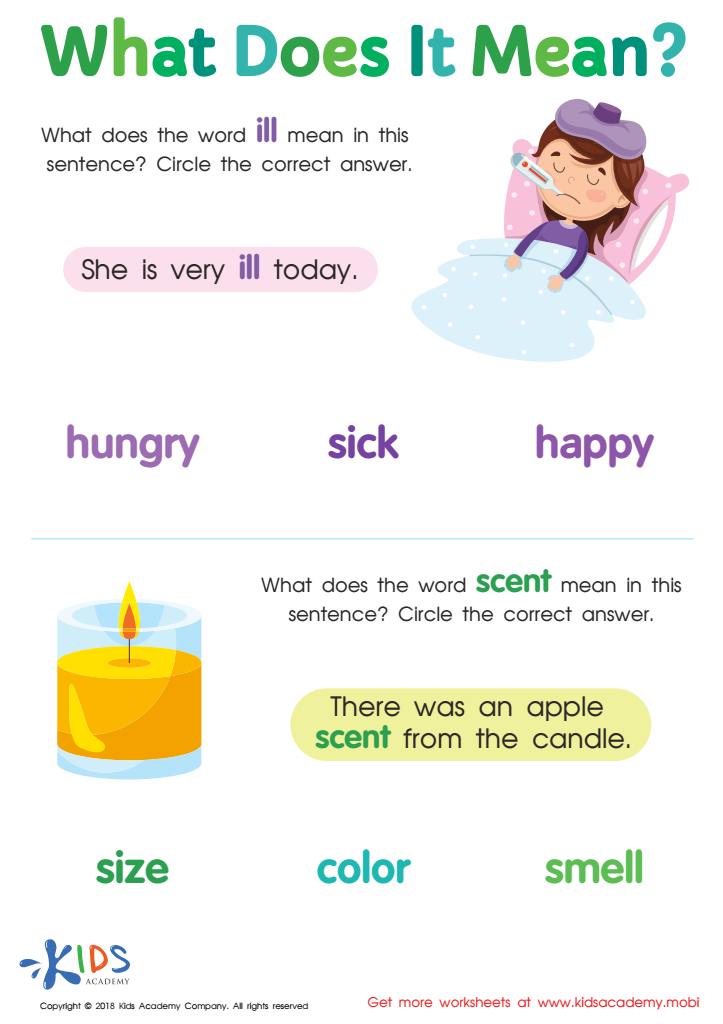

What Does It Mean? Worksheet
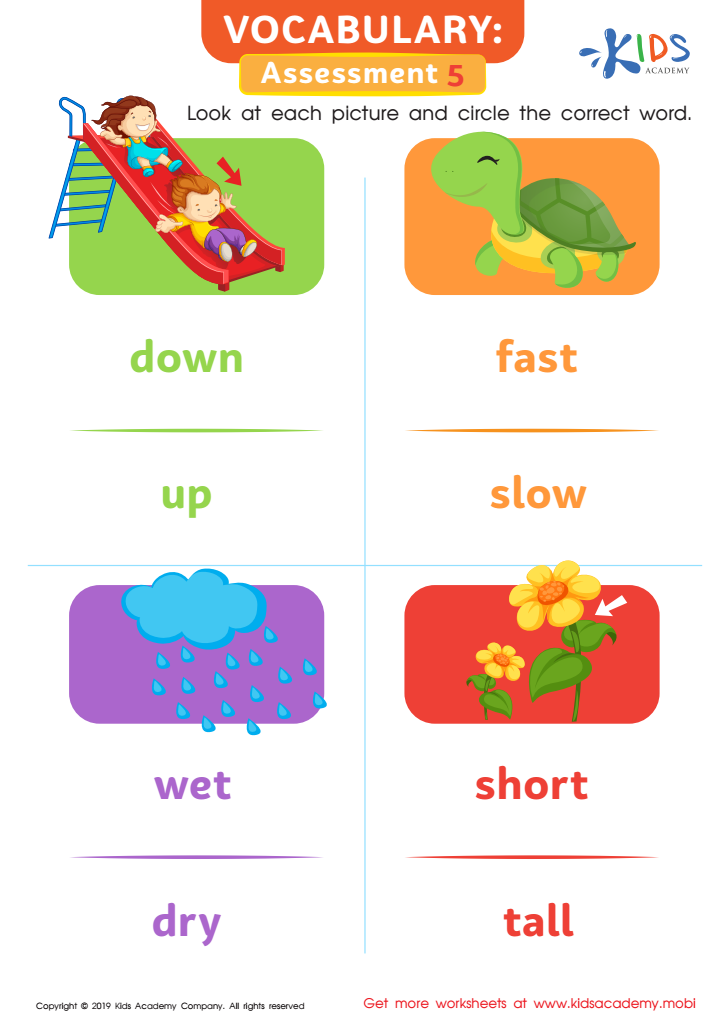

Vocabulary: Assessment 5 Worksheet
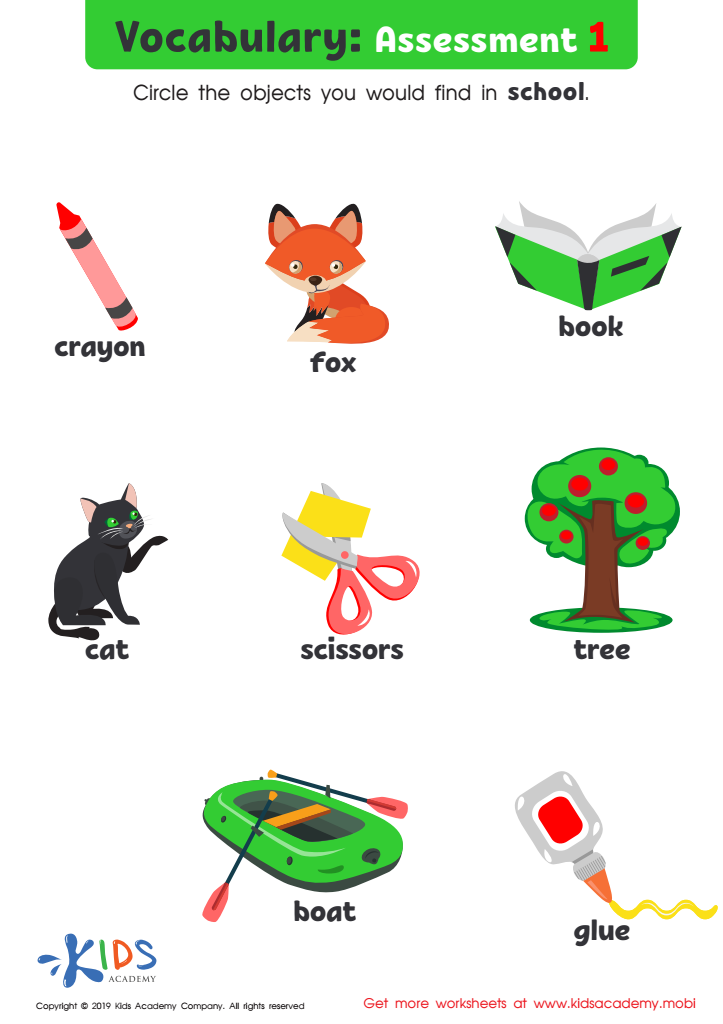

Vocabulary: Assessment 1 Worksheet
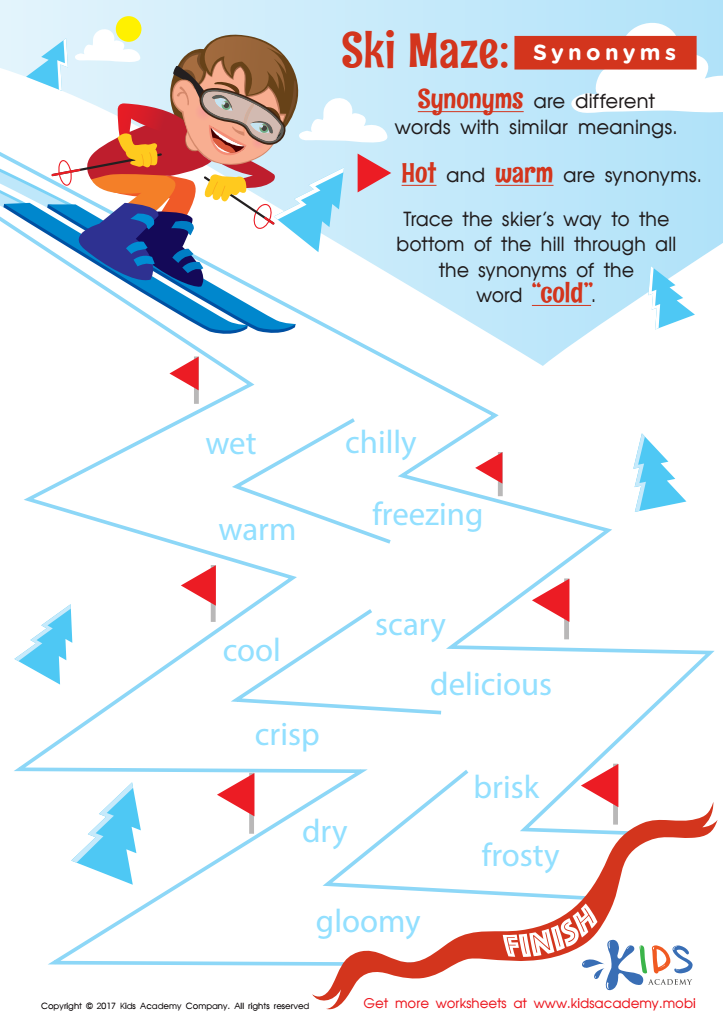

Free Printable Synonym Worksheet
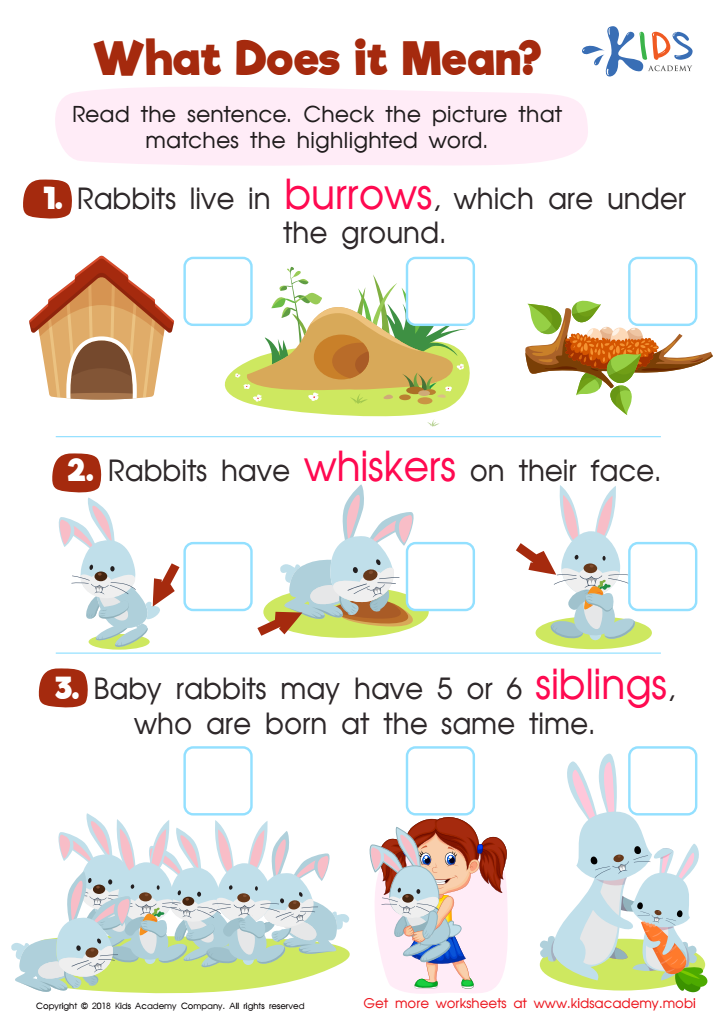

What Does It Mean? Worksheet
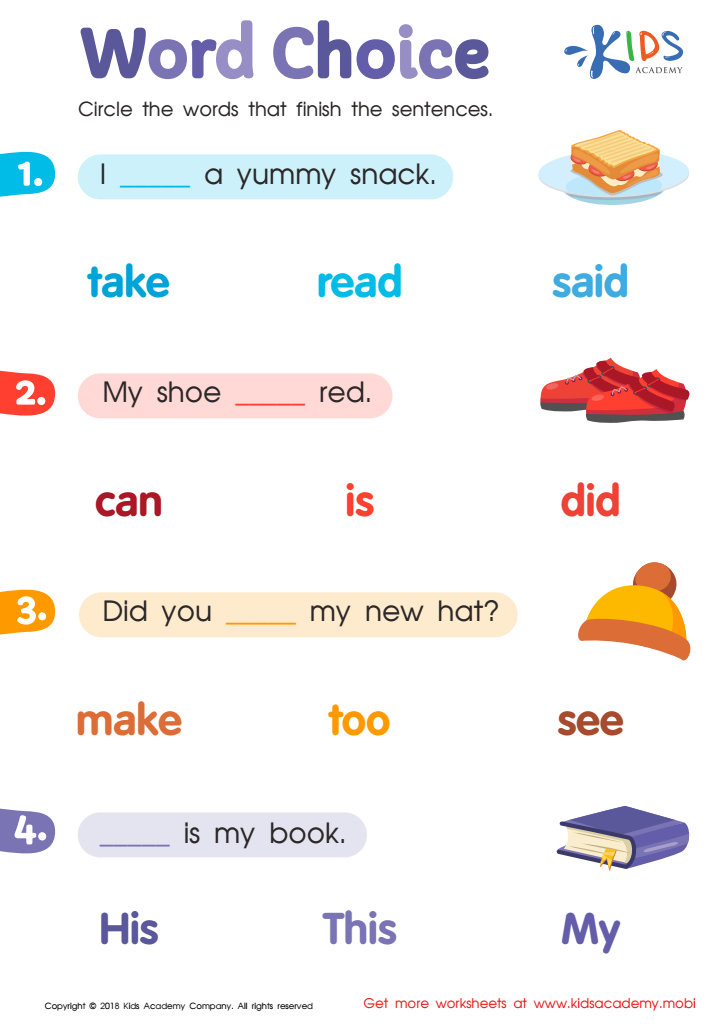

Word Choice Worksheet
Contextual understanding and vocabulary building are pivotal for children aged 4-6, as these skills lay the foundation for successful literacy and communication development. At this age, children are naturally curious and eager to explore language, making it the perfect time for parents and teachers to engage them in rich, varied language experiences.
Contextual understanding involves recognizing how words and phrases gain meaning from their environment and usage. When children learn vocabulary in context—through stories, conversations, or interactive play—they grasp not just the words but their nuances and applications in different situations. This approach enhances critical thinking and comprehension skills.
Additionally, a robust vocabulary is crucial for expressive language; it allows children to articulate their thoughts and feelings, fostering social interactions and emotional intelligence. Enhanced vocabulary also correlates with better reading skills as children progress in their education.
For parents and teachers, investing time in vocabulary development through games, storytelling, and everyday conversation offers immense long-term benefits. By supporting contextual understanding and vocabulary growth early on, we equip children with vital tools that promote academic excellence and confident communication throughout their lives.
 Assign to My Students
Assign to My Students

















.jpg)








